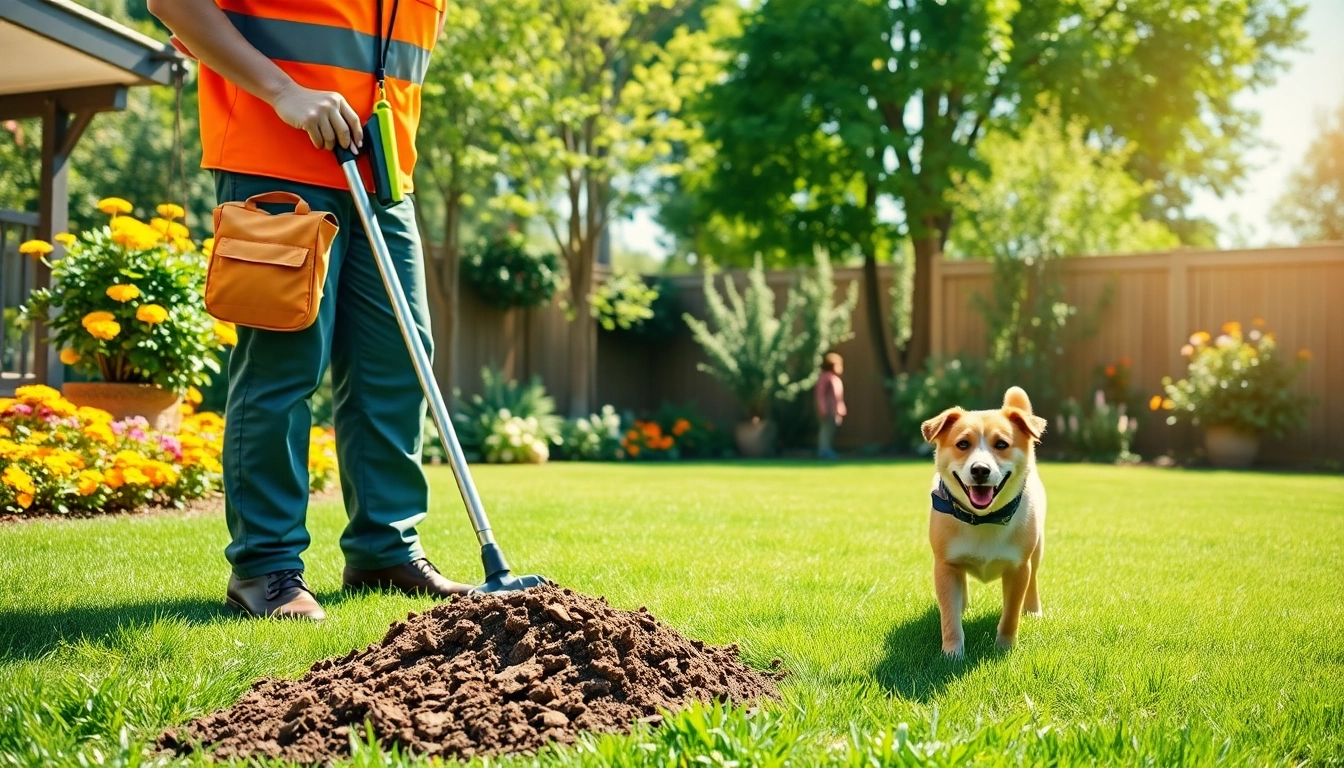Understanding the Importance of Regular Dog Waste Removal
As a pet owner, ensuring a clean and healthy environment for your dog goes beyond just providing food and shelter. One crucial aspect often overlooked is the regular removal of dog waste. Engaging in weekly dog poop scooping can significantly impact the health of your pet, the cleanliness of your yard, and the overall well-being of your neighborhood. In this comprehensive guide, we will explore the various dimensions of dog waste management, from health risks to environmental impacts and professional service considerations.
The Health Risks of Dog Poop
Dog poop is not just an unpleasant sight; it is a potential health hazard. Feces can harbor bacteria and parasites that pose health risks to both pets and humans. For example, Giardia and roundworms are common parasites found in dog waste, which can easily spread to other pets and even to children playing in the yard. Regular removal of dog poop minimizes the likelihood of spreading these pathogens, thereby reducing risks associated with illnesses such as:
- Giardiasis: A gastrointestinal illness caused by Giardia, leading to diarrhea, vomiting, and dehydration.
- Toxocariasis: Infection caused by roundworms that can affect the eyes and organs in humans.
- Bacterial Infections: Dog feces can contain harmful bacteria such as E. coli and Salmonella, which can cause severe illnesses.
Benefits of Regular Scooping for Pet Owners
Regular scooping has several tangible benefits for pet owners that go beyond mere aesthetics:
- Healthier Pets: Keeping the yard clean helps maintain your dog’s health by reducing the chances of infections and exposure to parasites.
- Improved Yard Conditions: Dog waste, when left unattended, can decompose and create an unsightly mess while also attracting pests and rodents.
- Enhanced Aesthetics: A clean yard is more welcoming for family, friends, and neighbors. It also improves property value.
Environmental Impact of Waste Management
The environmental implications of dog waste are often underappreciated. Dog feces contribute to water pollution when rain washes waste into local waterways, which can lead to algal blooms and harm aquatic life. Therefore, utilizing a pooper scooper service or engaging in regular scooping not only benefits your immediate environment but also contributes to the health of your community’s ecosystem.
How Weekly Dog Poop Scooping Works
Engaging a professional dog waste removal service simplifies the scooping process and ensures a cleaner, healthier yard. This section delves into how these services operate, their pricing strategies, and the scheduling options available for pet owners.
Examining Service Offerings and Pricing
Typically, professional waste removal services offer a range of plans based on frequency. The most common include:
- One-time Cleanups: Ideal for new dog owners or those returning home after a vacation.
- Weekly Scooping: The most recommended frequency, especially for multiple dogs.
- Bi-weekly Services: Suitable for owners with one or two dogs who may not generate large amounts of waste.
Pricing can vary widely based on location but generally ranges from $10 to $25 per visit, depending on factors such as yard size and the number of dogs.
Frequency and Scheduling Options for Pet Owners
When scheduling cleaning services, consider the number of dogs and their waste output. Many services allow you to customize visits according to your needs, making it flexible and convenient. Some companies even offer same-day services or subscription plans that provide discounts for signing up for longer durations.
Tips for Selecting the Right Service Provider
Not all poop scooping services are created equal. Here are essential criteria to consider when choosing one:
- Reputation: Look for online reviews and testimonials from previous customers to gauge the service’s reliability and satisfaction level.
- Experience: Opt for services that have been in business for several years, as they are likely to have developed efficient and reliable processes.
- Insured Technicians: Make sure the service employs insured and trained professionals to ensure safety and quality of service.
The Value of Professional Services vs. DIY Methods
Many pet owners face the decision of whether to undertake waste removal themselves or hire professionals. This section evaluates the value of professional services compared to DIY methods.
Cost Analysis: Professional vs. DIY
While DIY waste removal may initially seem cost-effective, the true costs can add up. Consideration must be given to time spent scooping, disposing of waste, and potential health hazards. Hiring a service may involve a set fee each week, but it guarantees a clean yard and peace of mind without the hassle.
Equipment and Techniques for Effective Cleanup
If you choose the DIY route, investing in proper equipment is essential. This includes a sturdy pooper scooper, biodegradable bags, gloves, and potentially a rake or shovel for more significant yard areas. Effective cleanup techniques can ensure thorough waste removal and reduce the risk of missed spots that can result in odors and bacteria.
Time Savings and Convenience of Hiring Experts
One of the significant advantages of hiring a professional service is time. Pet owners can save significant hours each week that can be better spent enjoying their time with their pets or handling other responsibilities. Moreover, the convenience of setting up a schedule with an experienced team ensures that the task is executed professionally and reliably.
Addressing Common Concerns with Weekly Scooping
Even with the benefits of professional pooper scooper services, some pet owners may have concerns. This section addresses these common worries and offers solutions.
Handling Waste in Family-Friendly Environments
In family-friendly settings, the idea of waste removal takes on additional significance. Parents can rest easy knowing that hiring a professional service will take responsibility for removing waste, maintaining hygiene, and also safeguarding children from health risks linked to untouched feces.
Alternatives for Sensitive Pets and Allergies
For pets with allergies or sensitivities to certain chemicals or fertilizers, communicate with your scooping service to ensure they use pet-safe methods for yard treatment after cleanup. Services that include complementary treatments can also enhance your yard’s health.
Best Practices for Dog Owners After Scooping
After the yard is scooped, dog owners should implement best practices to maintain cleanliness:
- Regular Yard Inspection: Walk through the yard periodically to ensure all waste has been cleared, especially after heavy rain or high winds.
- Training Your Dog: Begin training to encourage your dog to eliminate in specific areas, making future scooping easier and more efficient.
- Utilizing Waste Management Systems: Consider installing a pet waste digester or composting system to further minimize waste impact on the environment.
Case Studies: Success Stories of Weekly Services
To illustrate the benefits of weekly dog poop scooping, we examine several success stories from satisfied customers who made the switch to professional services.
Testimonials from Satisfied Customers
Numerous pet owners have praised the convenience and effectiveness of professional poop scooping services. A family in the suburbs shared how weekly visits transformed their backyard into a clean, safe space for their children and pets. Another testimonial noted how regular cleaning improved the overall aesthetic of their property, enhancing neighbor relations.
Analyzing Improved Yard Health After Service
In addition to improved cleanliness, many customers have noted a significant increase in lawn health. Scott, a dog owner from California, reported that after a few months of regular scooping, his grass had healthier growth and fewer bald spots. This observation is attributed to the reduction of dog waste’s detrimental effects on the soil.
Community Impact of Regular Cleaning Services
Beyond individual yards, the collective impact of regular dog waste removal services plays a vital role in community health. Local parks that adopt such services report lower odor levels and fewer pest problems, creating a more enjoyable environment for all. Communities that promote cleanliness not only foster better relationships among residents but also encourage pet ownership.









